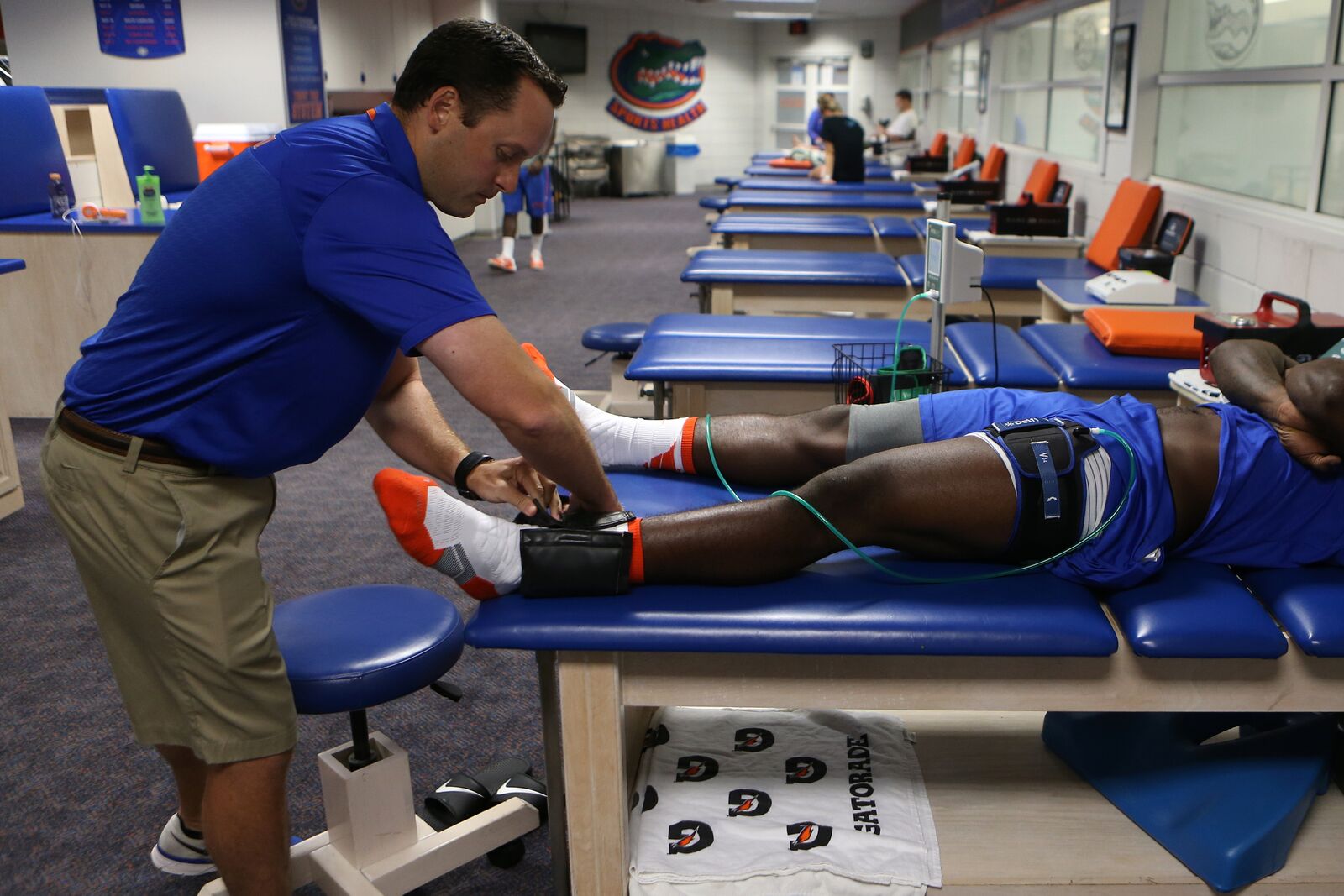Jun 14, 2018Stick to the Plan

At UMass Memorial Medical Center, our sports medicine team sees a wide range of athletes, from pediatrics to adolescents, high schoolers, collegiate athletes, and on through to mature recreational athletes. We cover every base in sports medicine from overuse injuries to the more complex reconstructive and joint preservation procedures. When dealing with our patients, regardless of the competition level or injury, a theme has emerged: Today’s athletes want and expect immediate results. They want to return to competing as soon as possible and disregard the recovery plan laid out by their health care team.
It is true that the latest advances in surgical techniques have reduced the amount of recovery time needed for athletes to get back on the field. However, these advances do not change the biology of healing, which can involve tissue or joint repair and the body’s return to normal functioning levels. There is no shortcut for this, which is a great cause of frustration for athletes. When the pace of healing is not aligned with what athletes feel it should be, the frustration often leads them toward poor decision-making processes.
Today’s athletes want and expect immediate results. They want to return to competing as soon as possible and disregard the recovery plan laid out by their health care team.
By contrast, we want them to see a direct correlation between complying fully with their rehab plan and getting to the outcome they desire — a return to competition. At the same time, we want them to avoid taking shortcuts that are not in their long-term best interest.
Our team places a great emphasis on educating athletes with thorough analysis so that they can recognize the amount of time it takes to get back from an injury. We have a systematic approach in the care of our patients and go through great pains to educate them on how to accomplish each goal, at each step, and how to ultimately get to their desired outcome.
The key element here is whether athletes are listening and committed to the plan we have laid out for them. The athlete needs to understand that at every subsequent follow-up visit with our doctors, we will give an assessment of their progress. If we are satisfied they can reach intermediate goals, we move them on to the next step of the plan. If they are unable to achieve a goal, they remain at that intermediate step until the doctor is convinced they can move on. This slows their recovery process and is one of the major consequences of non-compliance.
Nothing is more important to us than seeing athletes successfully recover from injury and safely return to the playing fields. It takes a team effort, and coordination between the care team, the athletic department (and parents), and the athletic trainer is pivotal.
Doctors can only do so much since we only see the athletes periodically. Athletic trainers play a much larger role in the overall health and education of the athlete and are key in safely guiding them back to full competition. The athletic trainers are with the athletes and actively attack the plan we have laid out for them.
Fortunately, we have great relationships with the athletic trainers at the high schools and colleges in our service areas. We are in contact with them constantly, and they understand how to nurture athletes through an injury. We are fortunate to be able to work with these health care professionals who share our commitment to acting in the long-term best interest of the athlete.
I understand that an athlete’s competitive nature makes it hard for them to accept being sidelined. This drive makes it increasingly difficult for our team to have athlete “buy-in” or compliance on their rehabilitation program. Most of the sports medicine doctor’s work constitutes roughly about 30 percent of the athlete’s recovery. The remaining 70 percent depends on the athlete and the decisions they make. The quickest path to returning to competition is full compliance with the plan laid out by the care team.


